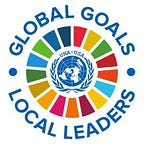The US, the UN, and Police Violence
By Ammarah Rehman, UNA-NCA Research Assistant
Worldwide, people are demanding justice.
Hundreds of thousands of people are protesting against racism and police brutality following the murder of George Floyd, a 46-year-old unarmed Black man, at the hands of Minneapolis police officer. The killing of Black Americans is a systemic problem in the United States and requires action beyond police reform and prosecution.
The death of George Floyd is not an isolated incident of police brutality. Black Americans are three times more likely to be killed than white Americans. In 2019, 1,098 Americans were killed by the police. From 2013 through 2019, only 1% of police officers were criminally charged.
The extrajudicial murder of Black Americans is a human rights crisis. Black activists throughout history have presented appeals to the United Nations to address the racial discrimination against Black Americans- to little avail.
On June 17, 2020, the UN Human Rights Council held a historic Urgent Debate to discuss racism, police brutality, and violence incurred against peaceful protestors. The debate featured nearly 70 UN human rights monitors, who called police brutality against Black Americans “racial terror.” They were joined by 60 Black US ambassadors, over 600 NGOs, and the families of other victims of police brutality, who echoed calls for systematic reform.
George Floyd’s family also urged for UN involvement, issuing an appeal which includes ending immunity for police officers, requiring all body-camera footage released following an incident, and the creation of a commission to investigate and prosecute incidents of police custody. Floyd’s family is not the first to call upon the UN for support.
Decades of Appeals Met with Inaction
In 1947, American civil rights activist W. E. B. Du Bois and the National Association for the Advancement of Colored People (NAACP) presented, “An Appeal to the World: A Statement of Denial of Human Rights to Minorities in the Case of Citizens of Negro Descent in the United States of America and an Appeal to the United Nations for Redress” to the United Nations.
Du Bois submitted his appeal in an era of police enforcing racial segregation and argued that the US was turning a blind eye towards the human rights violations against African Americans. The US ambassador to the United Nations at the time, Eleanor Roosevelt, refused to present “An Appeal to the World,” claiming it would harm the reputation of the United States.
In 1951, political activist Paul Robeson continued Du Bois’ work and presented an anti-lynching petition called “We Charge Genocide: The Historic Petition to the United Nations for Relief From a Crime of The United States Government Against the Negro People” to the United Nations Committe Against Torture. The petition stated that the United States government was guilty of genocide under Article II of the UN Genocide Convention. Robeson stated that Black Americans are segregated, discriminated against and targets of violence and are thus victims of genocide.
Renowned human rights activist Malcolm X sought to raise awareness about the injustices Black Americans were facing throughout the 1960s. He traveled and met with representatives of several African countries in order to gain their support in advocating for the UN to condemn human rights violations in the US.
“The problem of the Black man in America is beyond America’s ability to solve.”
-Malcolm X
Malcolm X was assassinated before he was able to deliver his speech to the UN. This further delayed potential recourse against the United States.
The appeals to the UN have continued into the 21st century. In 2014, the death of Michael Brown, a Black American shot by a white police officer, prompted a similar appeal to the UN. The parents of Michael Brown testified before the United Nations Committee Against Torture, stating that excessive use of force by police offers is a violation of the Convention against Torture and Other Cruel, Inhuman or Degrading Treatment or Punishment. Per these indicators, the same case could be made for hundreds of innocent Black Americans murdered by police officers every year.
What Happens Next
On June 19, 2020, the UN Human Rights Council, passed a Resolution condemning racial violence perpetrated by police officers against Africans and people of African descent and excessive use of force by police officers against peaceful protestors. According to the resolution, the High Commissioner for Human Rights Michelle Bachelet should, “prepare a report on systemic racism, violations of international human rights law against Africans and people of African descent by law enforcement agencies, especially those incidents that resulted in the death of George Floyd and other Africans and of people of African descent”. The resolution also calls on the High Commissioner, “to examine government responses to anti-racism peaceful process peaceful protests, including the alleged use of excessive force against protesters, bystanders and journalists”.
Furthermore, the report does not specifically address the issue of police brutality in the United States. The resolution calls for creating a report on systemic racism and human rights violations against Africans and people of African descent, but it ignores creating an international probe to investigate killings of black people in America. The UN must specifically address the killings of Black Americans by establishing an international independent commission of inquiry related to police violence and systemic racism.
Now is the time for the United States and other countries to reject the racial inequity that jeopardizes the lives of Black Americans. The Human Rights Council Resolution addresses an inquiry into systemic racial worldwide but fails to establish an investigation or plan to eradicate systemic racism.
Black Americans have presented several appeals to the UN over the past century- and more will be put forth in the absence of mobilization to eradicate police violence and racial discrimination.
